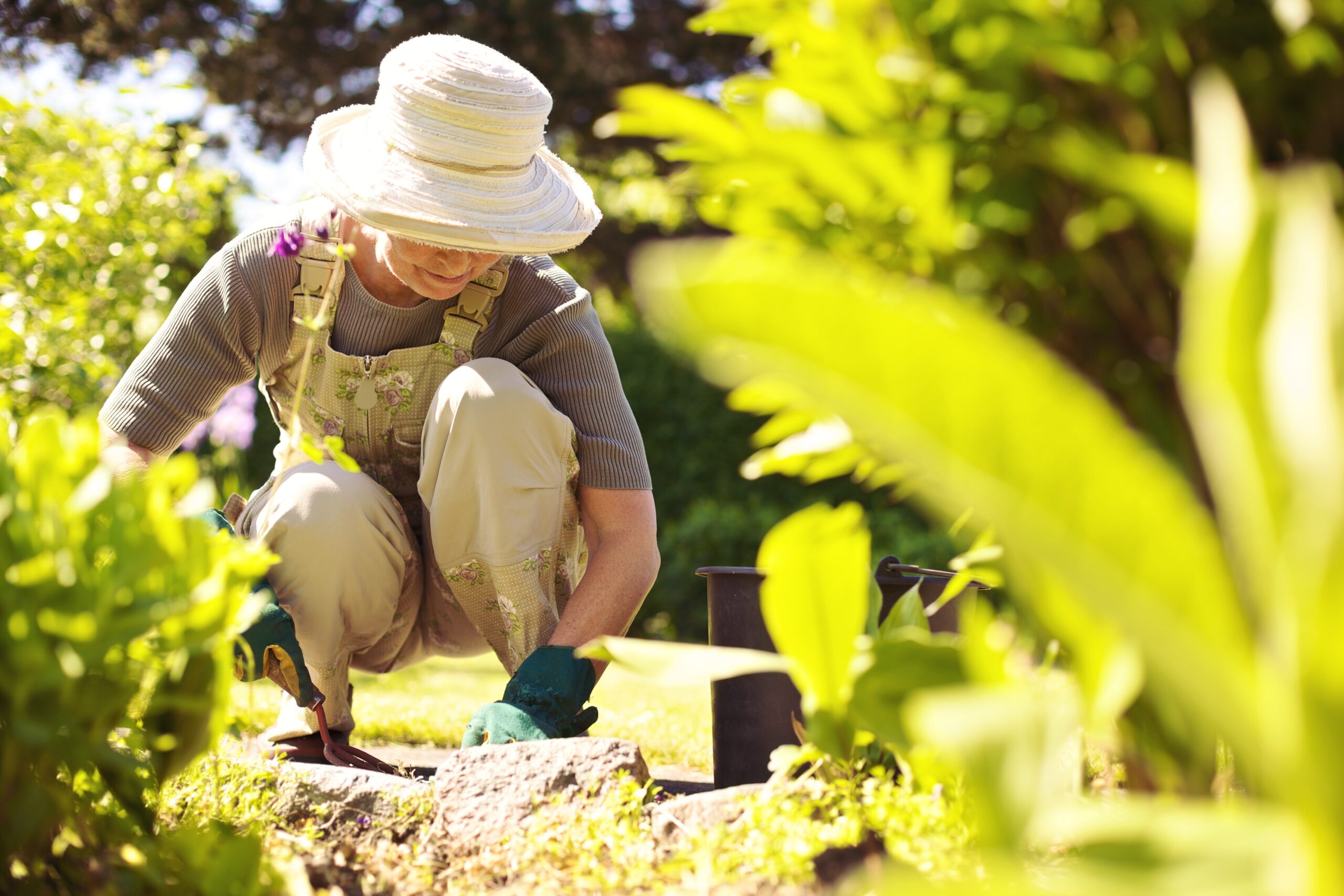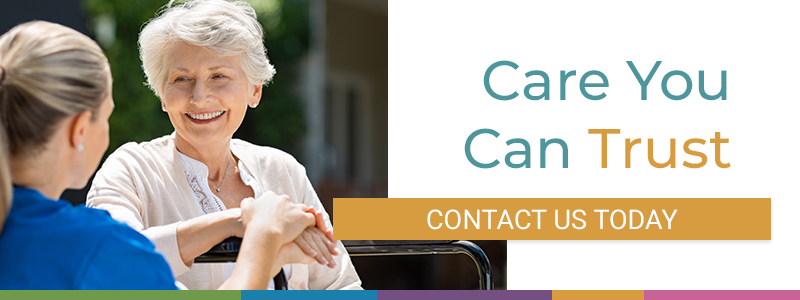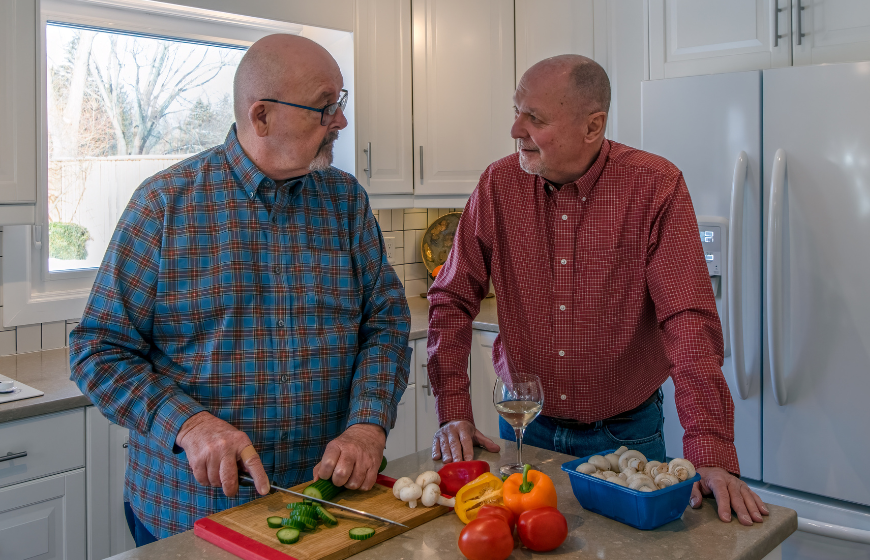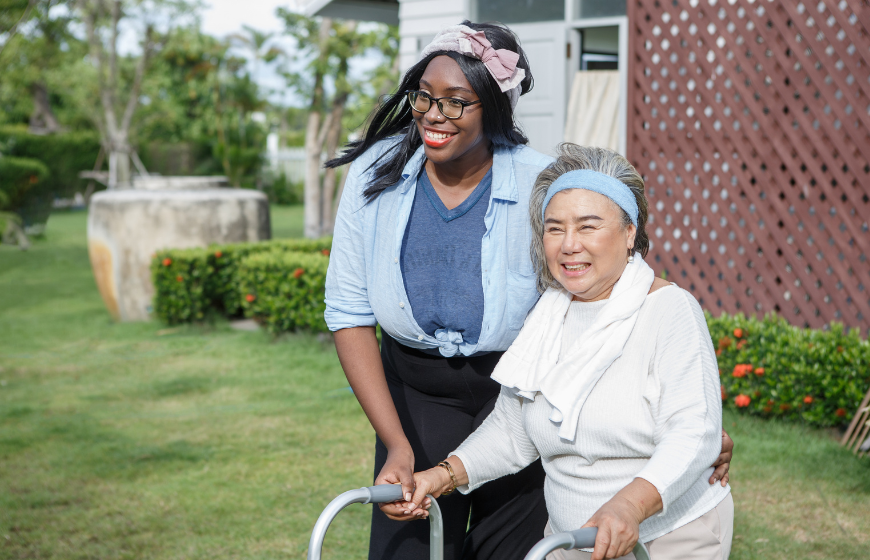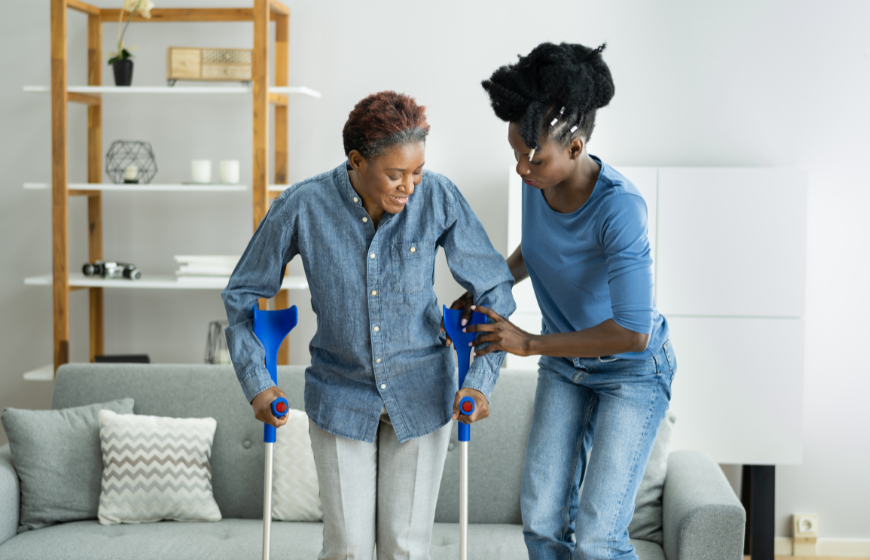Exercising and maintaining an active life benefit just about every aspect of your health, regardless of your age. Staying active helps you build muscle, strengthen your heart, manage weight, and work your mental muscles, all while releasing endorphins to relieve stress, boost your self-confidence, and improve your mood.
Unfortunately, staying active is often easier said than done. Maintaining a routine can be difficult, and it’s not always accessible, especially for elderly adults. However, there is at least one physical activity out there for everyone. You should, of course, consult your doctor before you begin any physical activity outside of your routine. Here are some fun activities for seniors suggested by our home health aide services.
1. Take a hike.
Hiking is a great way to exercise while getting closer to nature. Regularly hiking can boost your cardiovascular health, ease joint pain, and boost bone density. If you are wondering how to help elderly with depression, getting fresh air and sunshine has been shown to reduce symptoms and signs of depression, along with feelings of isolation and loneliness.
You don’t have to hike long distances or climb sheer cliffs to get those benefits. Strolling through your neighborhood bike path or finding a nearby nature trail is the perfect way to connect with nature and get your body moving. While you should, by all means, challenge yourself as you see fit, don’t feel pressured to go beyond your comfort level, especially when you’re just starting out.
Best of all, it doesn’t take much to get started. Comfortable shoes, easy to remove layers, and plenty of sunscreen are enough to get you through just about any trail. Use hiking poles or a walking stick to keep your balance. Most importantly make sure you stay hydrated and bring extra water.
Go slow, taking plenty of breaks along the way, and enjoy the nature around you. Hiking is also great with a friend or a group of friends, which fosters camaraderie and offers an extra bit of safety. Before you set off on your hike, tell a friend or family member where you’re hiking and where you’ve parked, especially if you are venturing on your own.
2. Play Tennis.
While it can be nice to play an entire match of tennis, you can still have a ton of fun playing for fun with a friend or a group of friends. Tennis requires a combination of strength, balance, concentration, and coordination, and it takes a surprising amount of cardiovascular activity. Tennis is a full-body activity that uses every muscle from your feet to your shoulders.
All you really need is a court, tennis racket, and ball. Tennis courts are readily available in many local parks, but larger gyms and local community centers have indoor courts, allowing you to play rain or shine.
There are a lot of fun games to play with your tennis partner. For example, you can practice dribbling the ball with your racket across the court, then see how many passes you can make in a row before the ball goes over the line. As you build confidence, you can start playing a more competitive game.
3. Yoga
Yoga has become an increasingly popular and fun activity among just about everyone lately. Yoga comprises a series of positions that work your flexibility, strength, balance, and mobility coupled with important breathwork that adds a meditative component to the exercises. There are a wide range of yoga exercises and positions to choose from. The best part is that nearly every position and stretch has variations for beginners, making it one of the most accessible, no-pressure activities for elderly adults.
Yoga can be easily performed indoors and outdoors. Wear non-restrictive clothes with some stretch to them, and invest in a comfortable yoga mat to keep from slipping. You can find numerous yoga classes, even some that are specifically for beginners and seniors. In-person instruction is the best way to learn positions and perfect your form, but the internet also offers an expansive range of yoga workout videos that allow you to follow along with trained instructors.
Vinyasa is the most popular form of yoga, but it mainly focuses on upbeat, high-intensity workouts to get the heart pumping. Beginning seniors should consider Iyengar yoga, which emphasizes stability and alignment while making positions more accessible with the use of household tools and props.
4. Start a garden.
At first glance, gardening might not seem like the most intensive exercise, but digging in the dirt and hauling up weeds can be more physically taxing than people realize. Gardening is a moderate-intensity exercise that can help you build strength, aerobic endurance, and functional movement and flexibility. It’s also a great way to connect with nature and soak in some sunshine.
Aside from the physical components, gardening is also an exercise in strategy. You have to think about what you’re growing and the amount of light and water that each plant needs. You have to consider how to protect your plants from pests and environmental factors. Tending a garden requires a surprising level of thought, planning, and creativity. There’s also something to be said for taking care of living things and being responsible for the wellbeing of your plants.
While the actual gear involved isn’t much—gardening gloves, comfortable shoes, basic gardening gear—it does require you to have the right space. Some outdoor space is ideal, but you can create a simple indoor garden with some pots and planters as long as you have plenty of sunlight. Make some small adjustments to enhance your comfort, like raising up plant beds to avoid constant bending or stooping down.
5. Practice tai chi.
Tai chi is one of the most common elderly activities, and for good reason. Tai chi is one of the only low-impact martial arts, meaning it is easy on the joints. This allows you to improve your balance, strength, and flexibility even if you have limited mobility or joint pain problems. The movements involved with tai chi are slow and gentle, but they require concentration and full control of your body. Similar to yoga, tai chi focuses on your breathing as you transition between moves, which calms the mind and relieves stress. Tai chi forms can be adjusted for your specific needs, including seated forms.
Tai chi requires no special equipment. Just wear comfortable, loose-fitting clothes. While you can find instructional videos online, it’s best to start with in-person programs so that you have a better idea of proper form, posture, and technique. Many gyms, community centers, and senior living facilities offer tai chi classes, so try to take advantage of these classes two to three times per week.
There are an endless array of creative activities to try. Whether you want to learn to dance or play a sport, don’t be afraid to try something new. There is always a way to adjust or modify activities to suit your personal comfort. With Alliance HomeCare, you can live your life to its fullest and enjoy all kinds of fun senior activities with some help and guidance from our team or in home nurse care options. Contact us to learn more about how our staff can lend a helping hand to your everyday life.
Sources:
